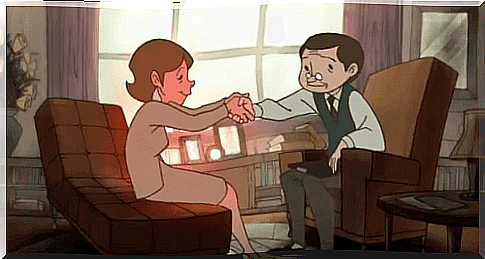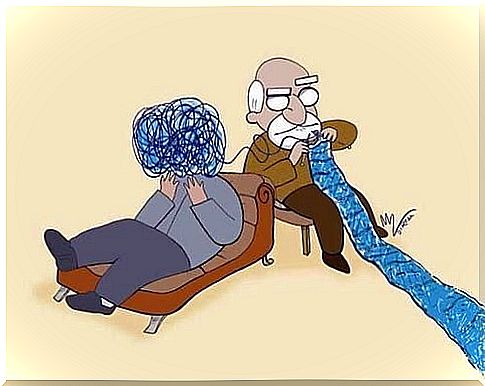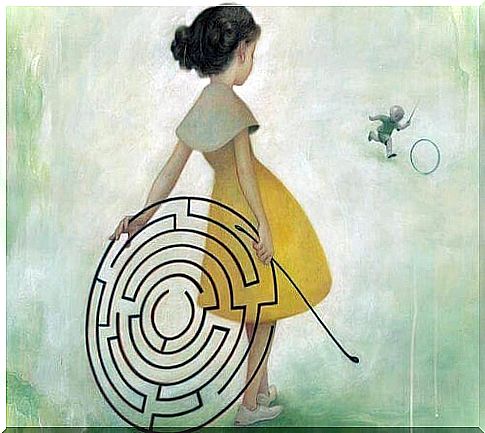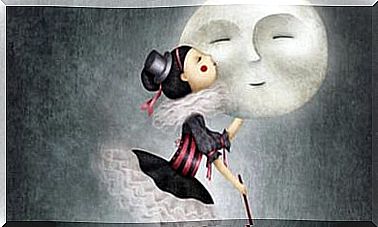Psychotherapy Does Not Create Or Destroy You, It Transforms You

Psychotherapy does not create or destroy you, it transforms you. This is not strange when we consider the effects that psychotherapy produces on our way of thinking, feeling and being moved, as well as on our behavior.
These changes are reflected in the brain for their lasting character, they help our body and mind to tune in to the same frequency, thanks to the psychological coherence we get from psychotherapy. These statements are not the result of chance or opinion, but root their foundations in neuroimaging studies, even if this is a statement that must be assessed with caution to avoid the sin of reductionism.
It is true that we know less about our brains than we do about the planet Mars, but currently thanks to several advances in technology, which allow us to visualize our brain activity, we can obtain data on how it transforms in our brain when we resort to therapy. Let’s find out more about this topic!

The wonderful changes that psychotherapy produces
The relationship between mental and brain changes is bidirectional. This means that, for example, changing our thoughts can transform our brains and vice versa. Nonetheless, even if we cannot yet state with total certainty what these changes are, we can follow a general track:
- A study by Wiswede and his collaborators found some changes in the hyperexcitability of the limbic system of patients with depressive disorders after eight months of psychodynamic psychotherapy.
- Other studies have instead associated the brain changes that accompany the improvements in psychotherapy in the case of depression with a variation in the areas involved in problem solving, self-perception and emotional control.
- In cases of anxiety, such as phobias, panic or post-traumatic stress, neuronal changes have been observed in people who resort to psychotherapy, specifically in the limbic system, in the temporal and frontal areas. Obviously, this depends on the original problem and its etiology.
People who have received adequate psychological support benefit from it an improvement in their personal well-being at all levels. Well, evolution largely depends on people’s interest in improving. There is a fairly famous saying about it: “How many psychologists does it take to change a light bulb? Only one, but the light bulb must want to be changed ”.
It is true that you can meet negligent psychologists, like in any other profession, there are people who do not do their job correctly. For this reason, when psychotherapy is used to evolve, it is necessary to carefully search for the psychologist to turn to, discarding a priori those who promise psychotherapies without being psychologists or psychiatrists, as well as individuals who follow a negative practice.

Sometimes the support of a psychologist is essential to overcome certain difficulties
The support of a psychologist is essential when we want to give coherence to our difficulties and articulate their overcoming. When you need therapy, it doesn’t necessarily mean you have a mental problem, nor is psychology based on common sense.
The psychologist cannot find out what we are like if we do not tell him and he does not spend his days analyzing others (in fact, psychoanalysis is a role that belongs to the psychoanalyst, and for this, hard therapeutic work must be carried out).
To conclude, we want to dispel another false belief: doing psychotherapy is equivalent to talking to a friend and, therefore, it makes no sense to go to a psychologist. Exactly as Nathan Feiles tells us,
:
- Not everyone has a good friend to ask for help.
- To let off steam and talk is good and, in fact, is an important part of psychotherapy, but not the only one. While talking can be helpful in relieving stress, poorly handled can cause other problems. Certain cognitive and emotional processes that accompany a given problem cannot be overlooked.
The psychotherapist psychologist is a person with great training in this discipline, whose skills go far beyond just listening and intimate conversation. His objectivity and his knowledge allow him to draw up a balanced picture of the situation, to be able to help us solve our problems and guide us towards the path we want to take.
Finally, as icing on the cake, here is a short film that illustrates the wonderful work of the psychologist:
Bibliography consulted:
Barsaglini, A., Sartori, G., Benetti, S., Pettersson-Yeo, W. & Mechelli, A. (2014). The effects of psychotherapy on brain function: A systematic and critical review. Progress in Neurobiology, 1–14.
Wiswede, D., Taubner, S., Buchheim, A., Münte, TF, Stasch, M., Cierpka, M., Kächele, H., Roth, G., Erhard, P. & Kessler, H. (2014 ). Tracking functional brain changes in patients with depression under psychodynamic psychotherapy using individualized stimuli. PloS One (2014). DOI: 10.1371 / journal.pone.0109037.









